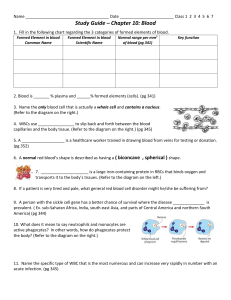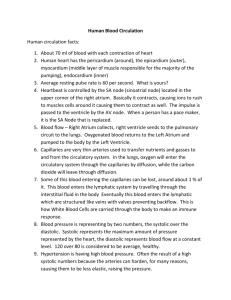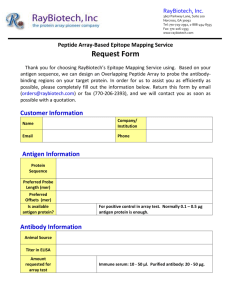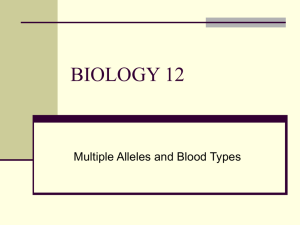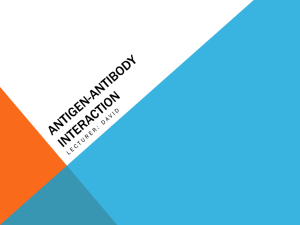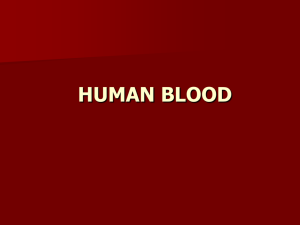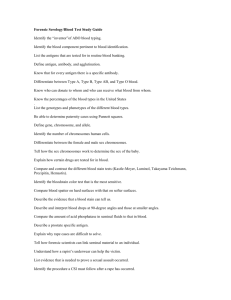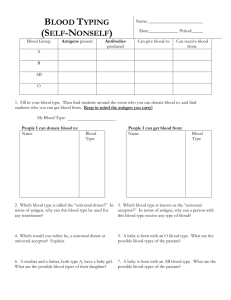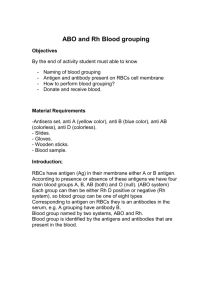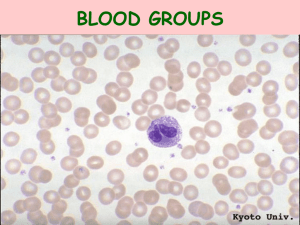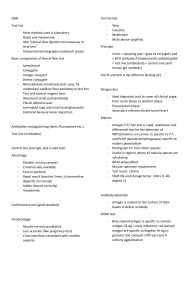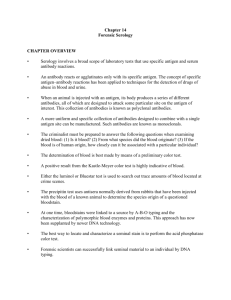Chapter 10: Blood
advertisement
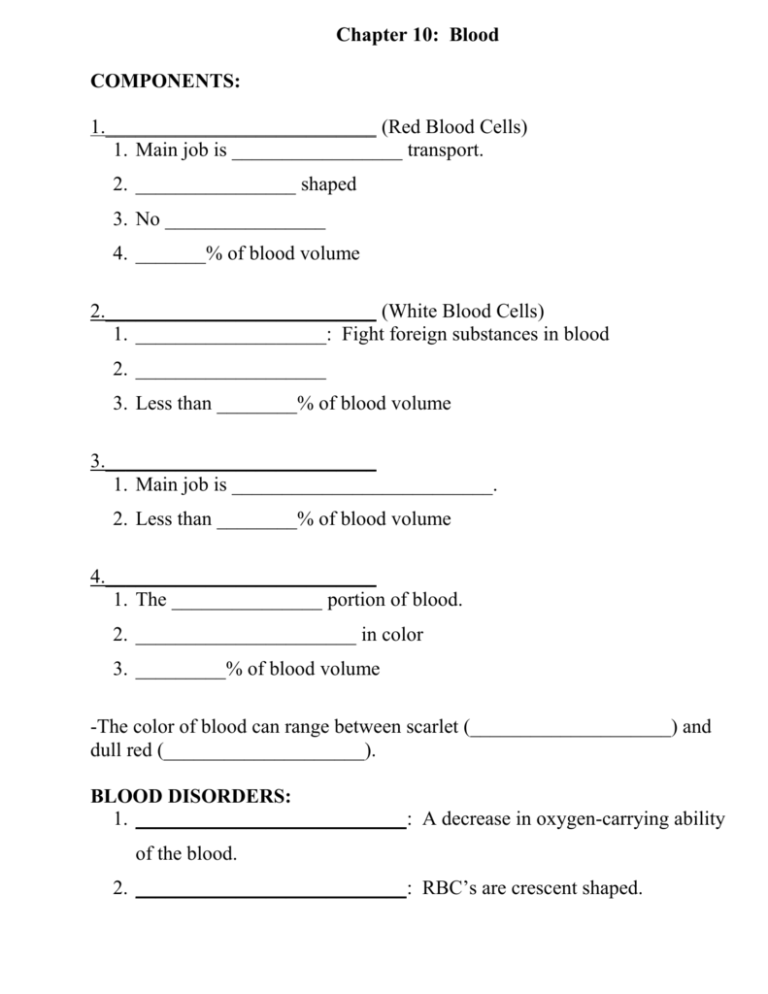
Chapter 10: Blood COMPONENTS: 1.___________________________ (Red Blood Cells) 1. Main job is _________________ transport. 2. ________________ shaped 3. No ________________ 4. _______% of blood volume 2.___________________________ (White Blood Cells) 1. ___________________: Fight foreign substances in blood 2. ___________________ 3. Less than ________% of blood volume 3.___________________________ 1. Main job is __________________________. 2. Less than ________% of blood volume 4.___________________________ 1. The _______________ portion of blood. 2. ______________________ in color 3. _________% of blood volume -The color of blood can range between scarlet (____________________) and dull red (____________________). BLOOD DISORDERS: 1. ___________________________: A decrease in oxygen-carrying ability of the blood. 2. ___________________________: RBC’s are crescent shaped. 3. ___________________________: Abnormal increase in the number of RBC’s. Makes blood thick and impairs circulation. 4. ___________________________: Disease in which blood does not clot. 5. ___________________________: A clot that develops and persists in an unbroken blood vessel. 6. ___________________________: A detached thrombus. Can cause a stroke. BLOOD TYPES: 1. Type A: Has _____ Antigen, _____ Antibody 2. Type B: Has _____ Antigen, _____ Antibody 3. Type AB: Has _____ Antigen, _____ Antibodies. Universal Recipient. Most Rare 4. Type O: Has _____ Antigen, Has _____ Antibodies. Universal Donor. Most Common. MOTHER/CHILD Rh INCOMPATIBILITY: A mother who is Rh- and a father who is Rh+ will have a child who is Rh+. Because the blood type is different from the mothers, it will cause complications for all pregnancies except the 1st one. *This only affects mothers who are Rh- for their blood type. If the mother is Rh+, this will not be an issue for her no matter what the father’s Rh factor is*
